This episode of Intersect Ed was taped on the morning of Tuesday, June 3, just a few blocks from the Capitol, the day after the 89th Texas Legislative Session ended. Public education and Texas legislative policy experts, who regularly meet with staffers, legislators, and advocates throughout the state, shared their top insights with a live audience. They discuss what has been hailed as Historic legislation for public education – including the $8.5 billion package in school funding and teacher raises and the passage of Texas’ new voucher program – as well as the inability of the legislature to agree upon and, therefore, change our assessment and accountability system.
Host Morgan Smith was joined by Jaden Edison, public education reporter with the Texas Tribune, Scott Braddock, editor at Quorum Report.com, Edward McKinley, Austin Bureau reporter for the Houston Chronicle and the San Antonio Express-News, and Bob Popinski, Senior Director of Policy at Raise Your Hand Texas.
read more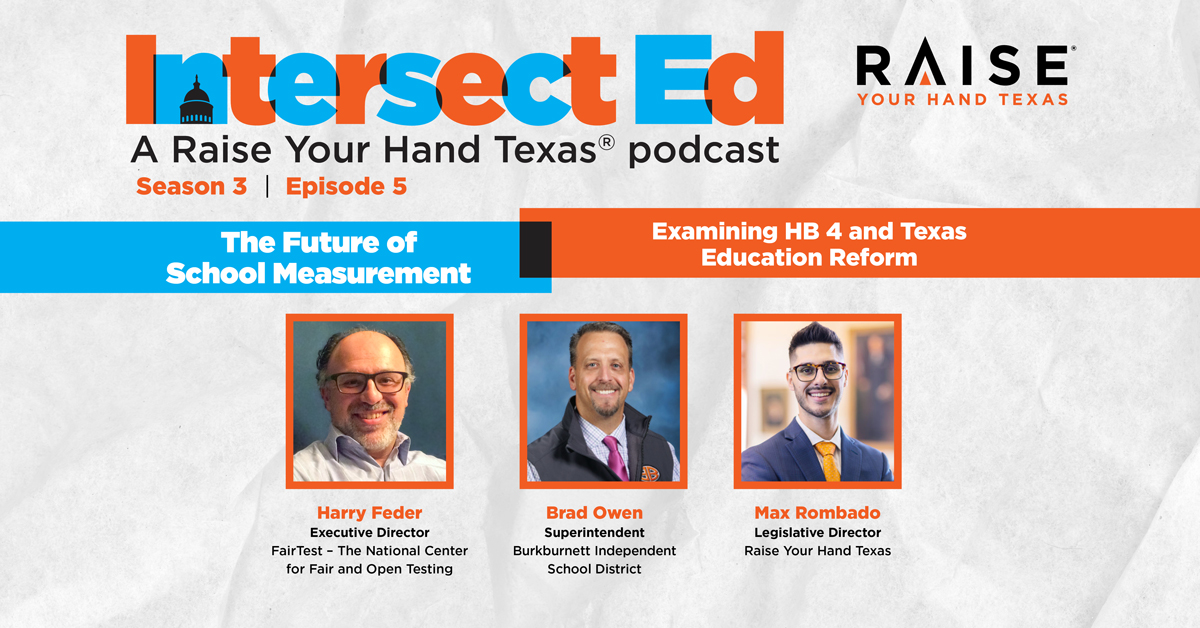
This episode of Intersect Ed discusses how we measure the performance of Texas public schools, the value of local accountability systems, and the ways HB 4 could provide meaningful assessment reform for our schools and better support student learning for the sake of learning instead of assessment. Additionally, if HB 4 passed, it would […]
read more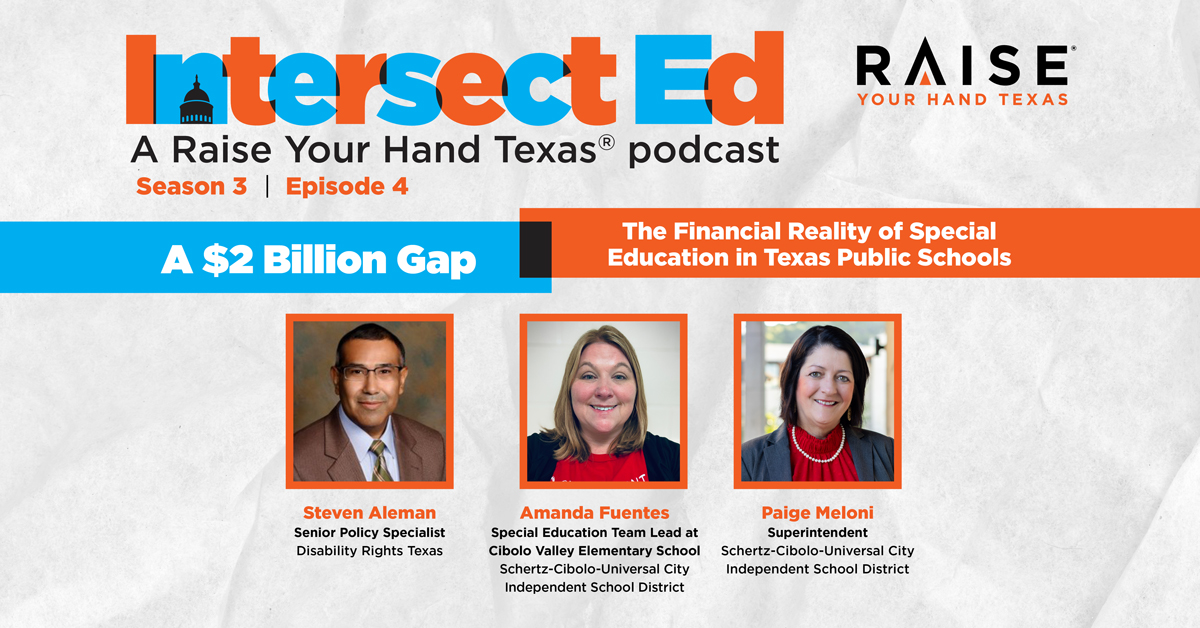
This episode of Intersect Ed discusses an often misunderstood topic: funding special education in Texas public schools. Our schools provide special education services to the almost 800,000 students with disabilities in the state. This episode will explore why it costs so much to do it right and the $2 Billion dollar gap that Texas […]
read more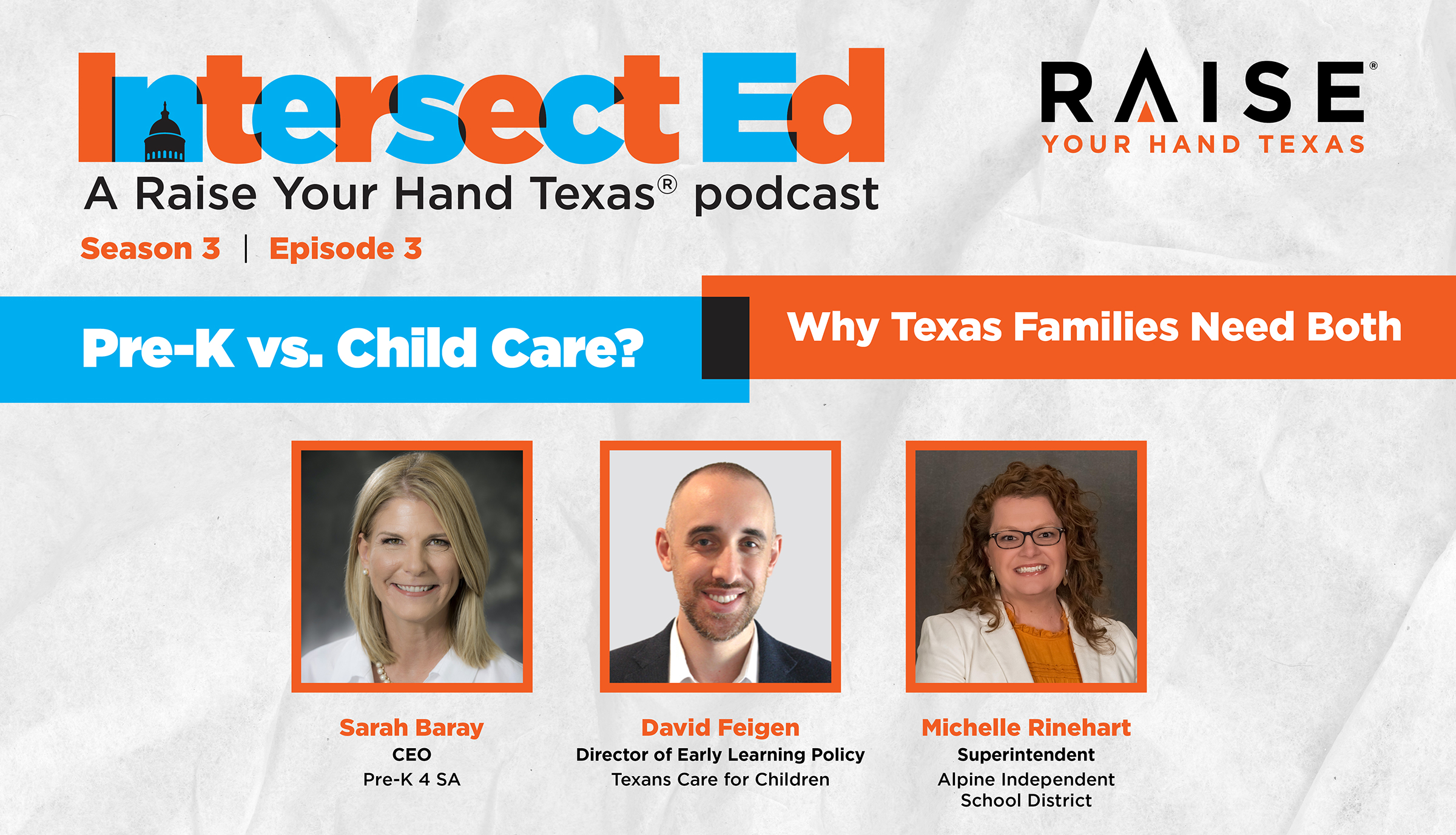
This episode of Intersect Ed explores Texas’ early education, focusing in on the challenges faced by public pre-schools and child care providers. Current half-day pre-K funding forces public school districts in Texas to cover costs for their state-mandated full-day programs. At the same time, many Texans can’t afford traditional child care. Learn about successful […]
read more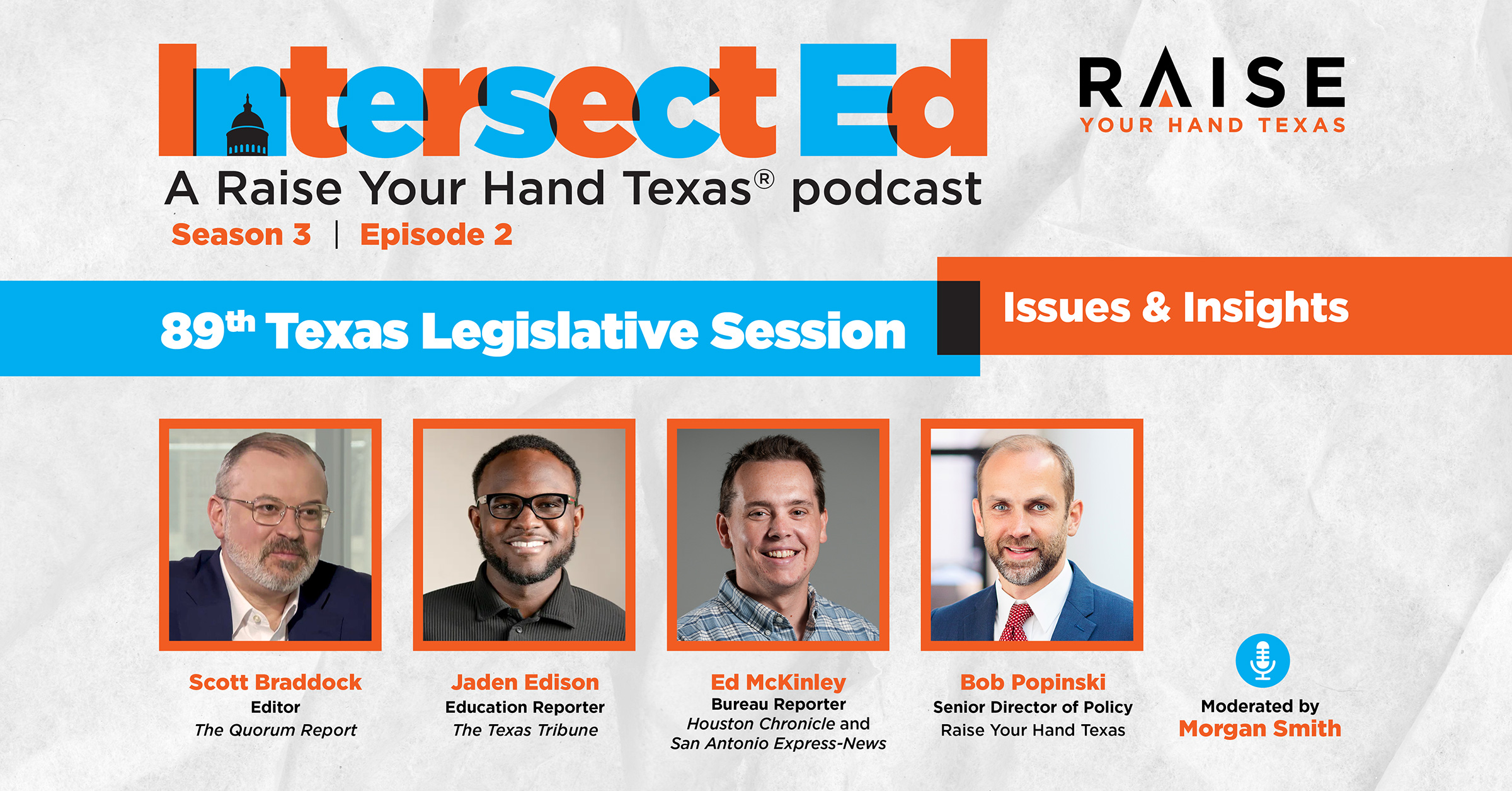
This episode of Intersect Ed was taped on the morning of Thursday, Jan 30, just a few blocks from the Capitol, where the 89th Texas Legislative Session is already underway. Experts who meet with staffers, legislators, and advocates throughout the state and regularly report on the issues that matter most to public education shared their […]
read more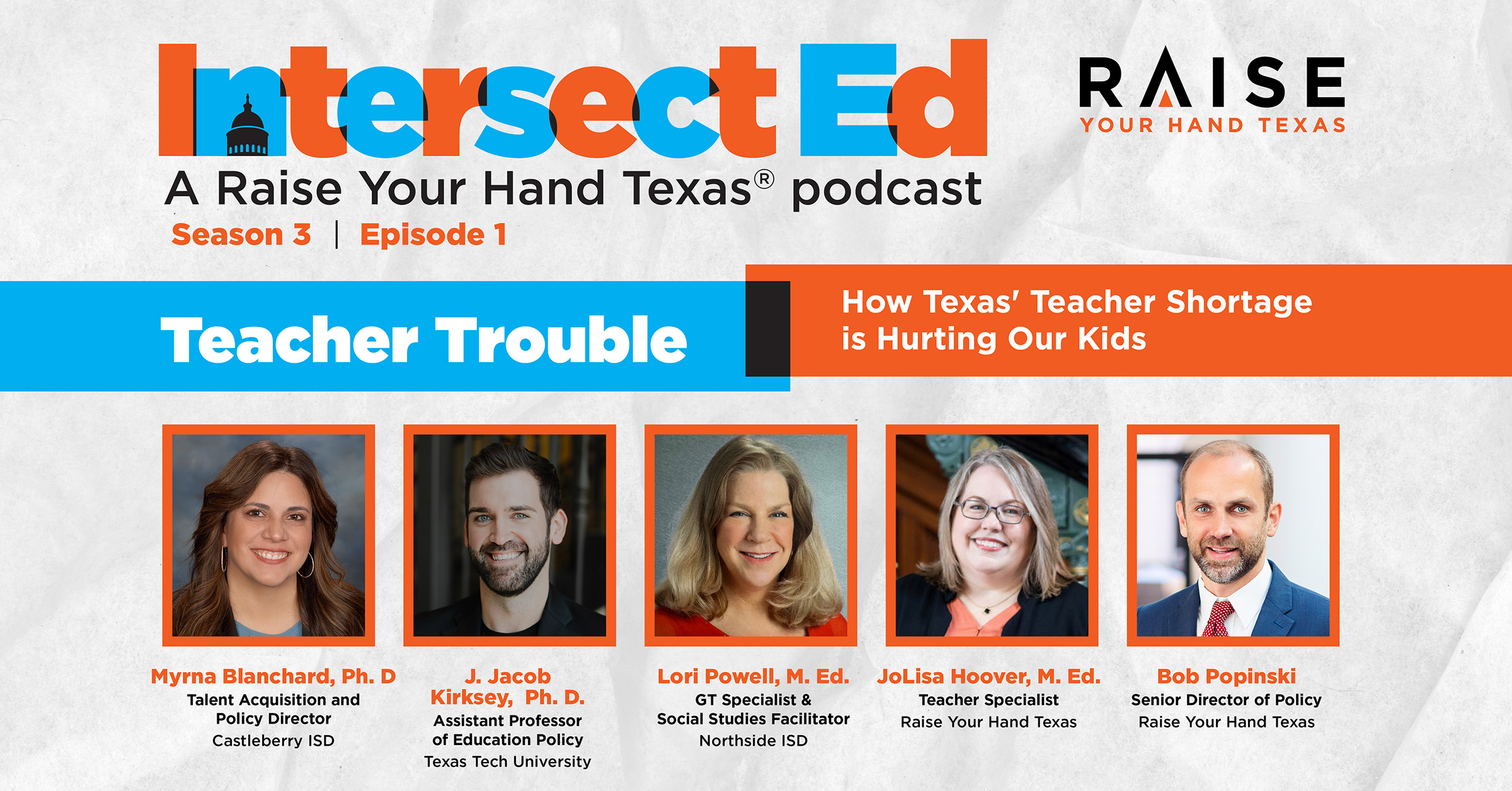
If one word defined the Legislature’s approach to education policy in 2023, it was gridlock. Bill after bill — including crucial proposals for school funding and teacher pay raises — fell victim to lawmakers’ battle over vouchers. This only intensified the pressure on Texas public schools, leaving them to deal with teacher shortages, budget shortfalls, […]
read more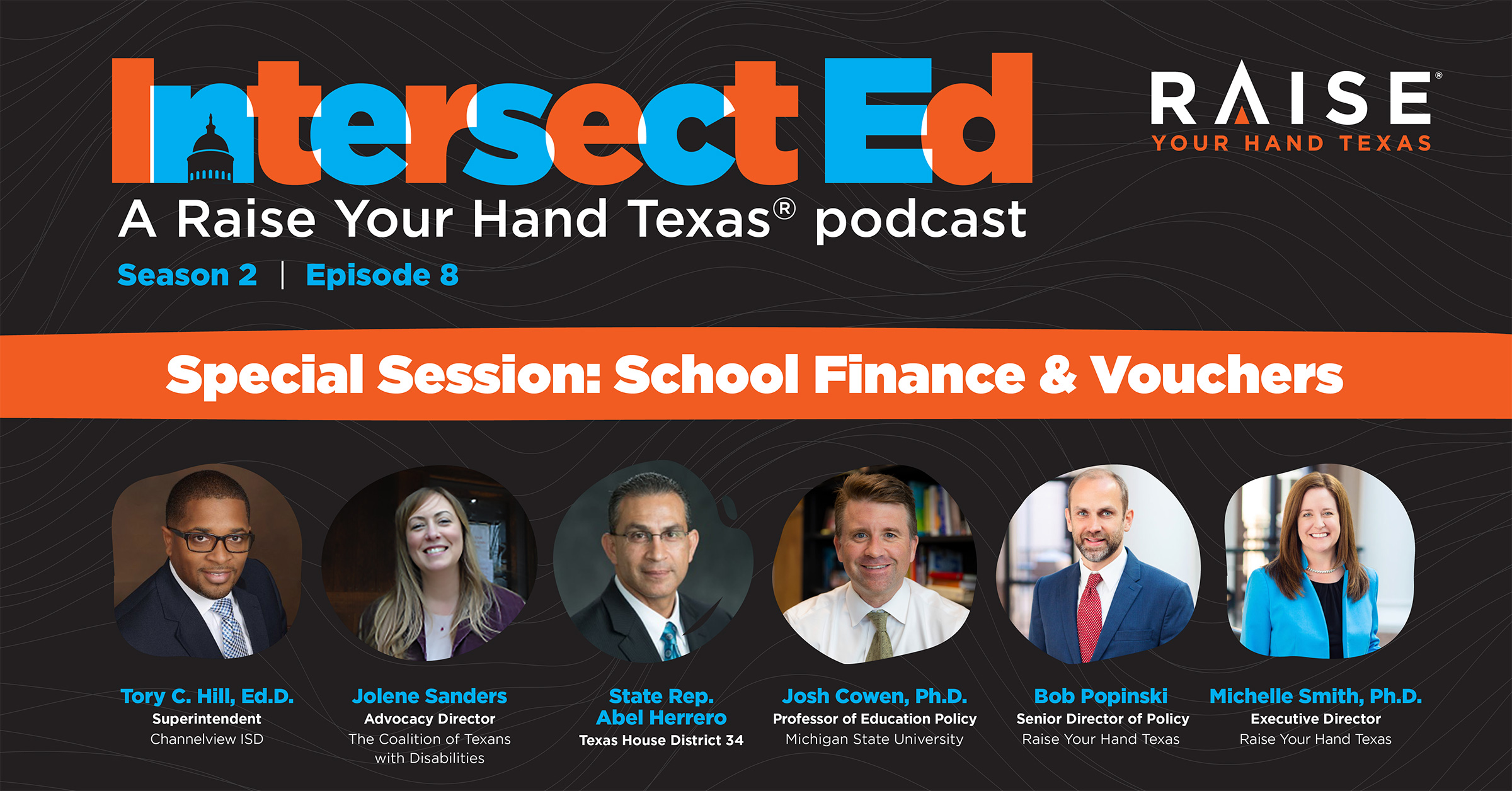
We’re talking about the special legislative session that began Oct. 9, and the intense financial pressure facing Texas public schools. Gov. Greg Abbott has called state lawmakers back to Austin with strict orders to complete some unfinished business from the regular legislative session that ended back in May. And if you listened to our legislative […]
read more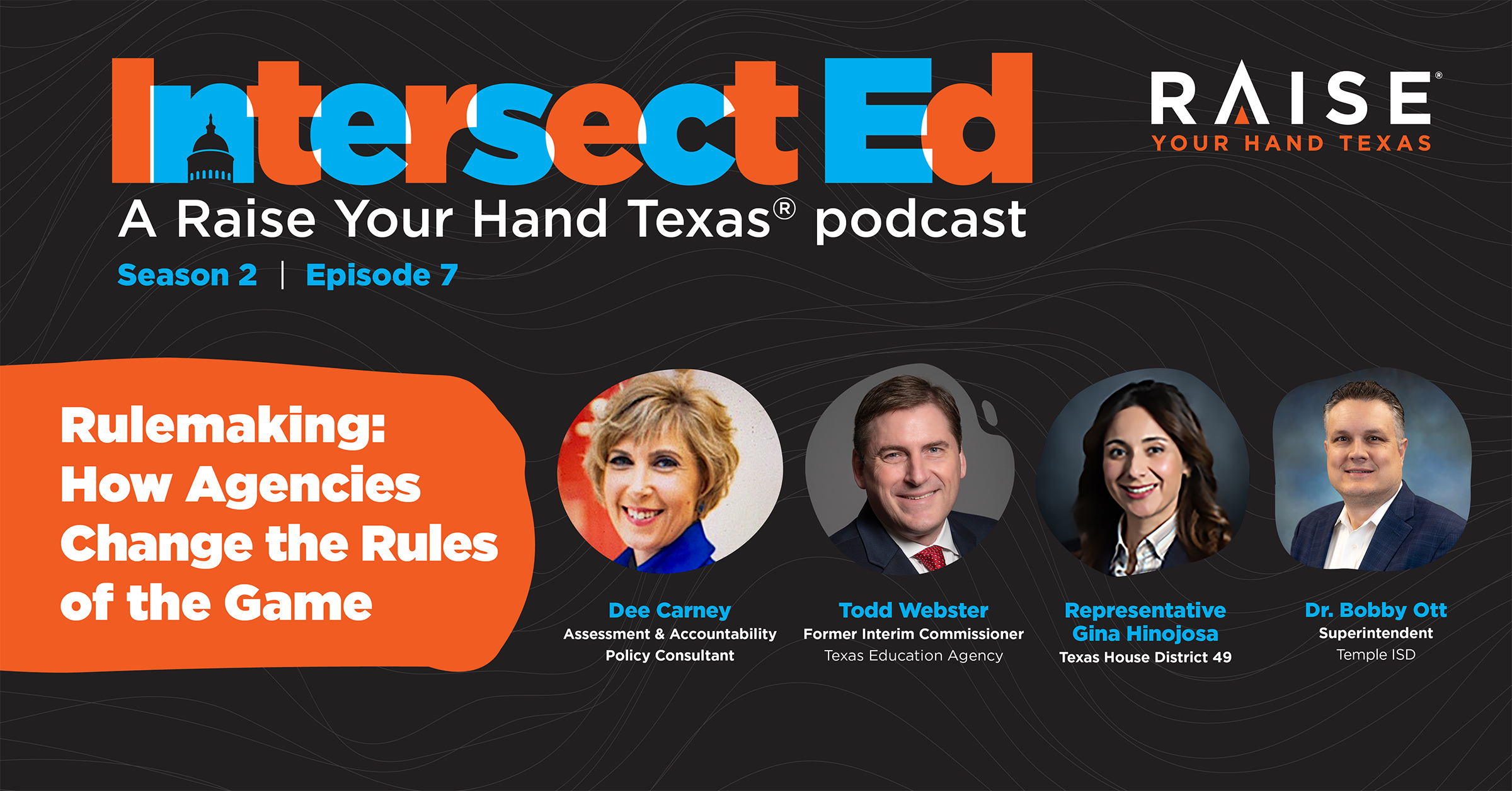
We’re talking about a big change that’s about to wallop Texas school districts. At the end of September, as lawmakers approach an anticipated special session this fall on private school vouchers, about one out of every four public school campuses will see the letter grade that marks their performance in the state’s A-F accountability system […]
read more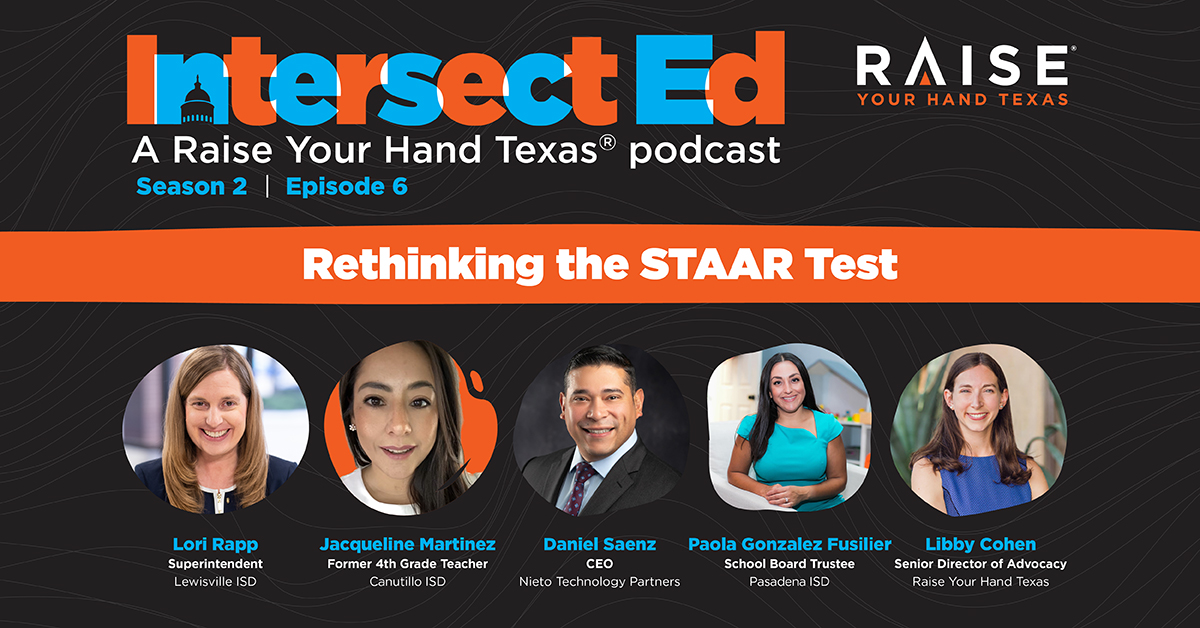
How we measure success in Texas public schools? Right now, standardized testing and an A-F accountability system that assigns grades to campuses is used almost entirely to grade our schools. Accountability, and the transparency it brings, is essential. We need to make sure the 5.4 million students in Texas public schools are provided with the […]
read more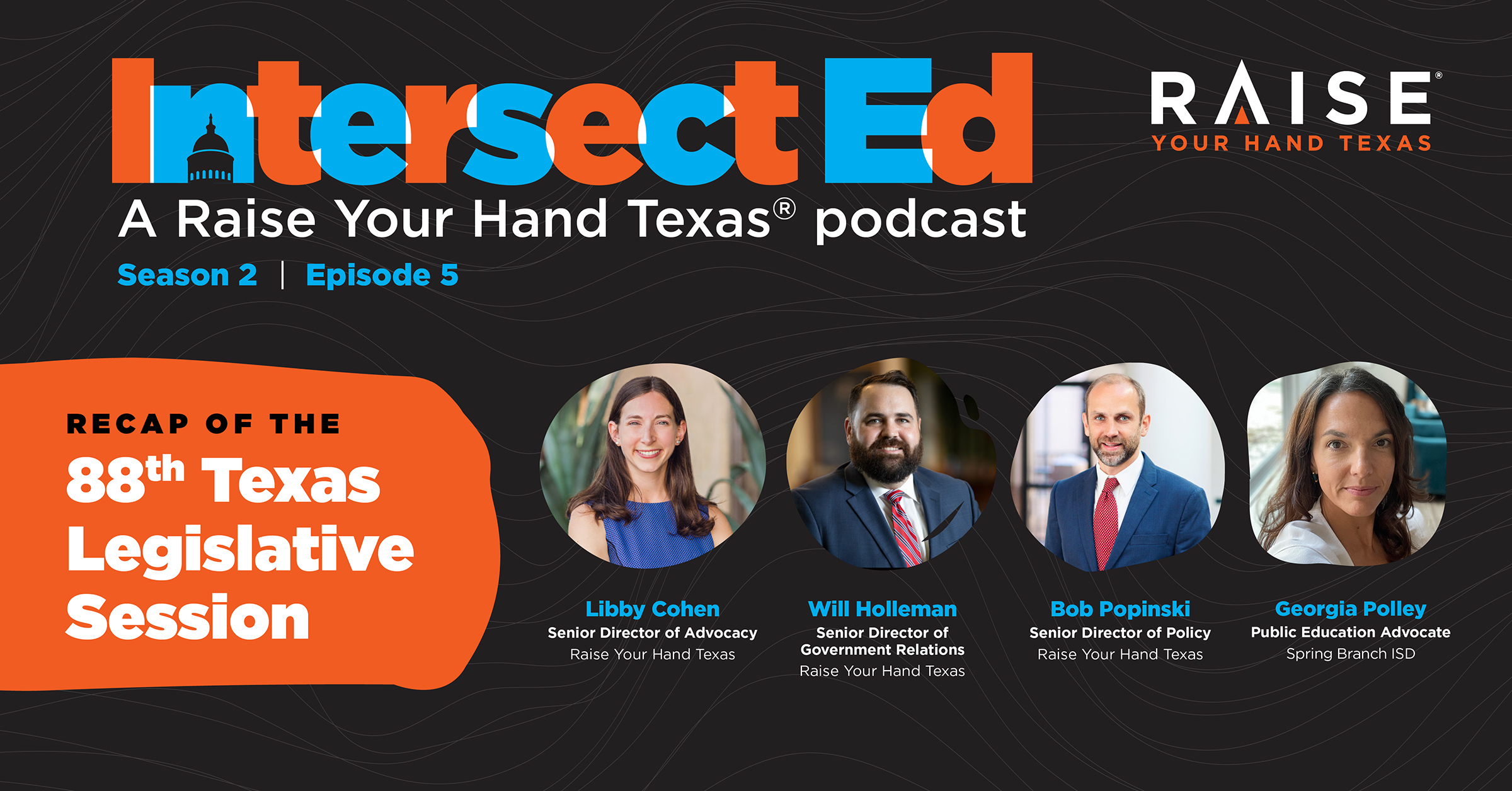
The 2023 legislative session started with a lot of promise. Lawmakers had a historic $33 billion dollar budget surplus, and there was energy and consensus to address a number of public education issues. Instead, lawmakers failed to give Texas public schools enough funding to even keep up with inflation, much less provide teacher pay raises […]
read more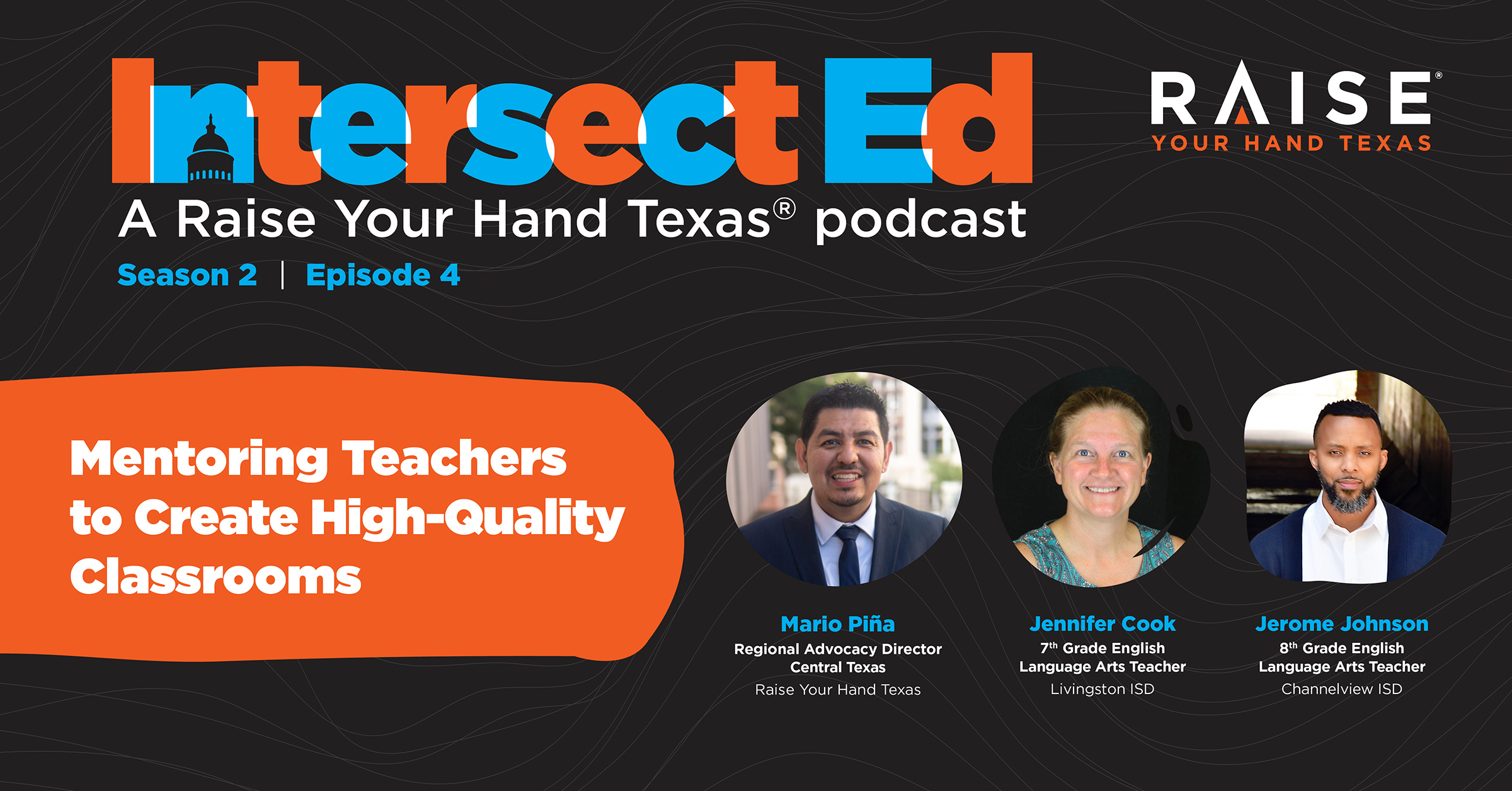
The formalized practice of having more experienced teachers coach those newer in the profession has the potential to help with a major challenge facing Texas public schools — teacher shortages. It also benefits everyone involved, from the experienced teachers acting as mentors who now have a chance to learn new skills, to the newer […]
read moreSubscribe to our e-newsletter and periodic text alerts for Texas education news, stories, policy insights, and ways to make a difference.
We only use this information to send emails and texts relevant to you and will never share this information with third parties.